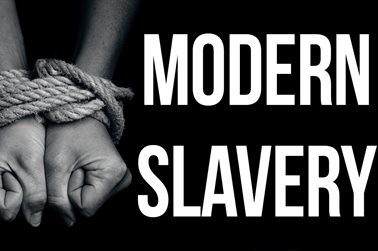By Mutesi Sandra
The concept of slavery evokes images of shackled individuals forcibly taken from their homelands, enduring brutal conditions under the control of oppressive masters.
At the same time, historical slavery involved overt coercion and physical chains, as the picture was vividly painted in many movies, such as the Apocalypto movie.
The movie was directed by Mel Gibson, and featured Jaguar Paw as the lead actor.
Modern-day slavery often wears a more insidious mask. Today, many individuals willingly enter into situations that result in conditions akin to slavery, particularly when seeking employment abroad.
Let us look into the phenomenon of voluntary modern-day slavery, how economic desperation and deceptive recruitment practices trap people in exploitative conditions, and how it contrasts with traditional forms of slavery.
Historically, slavery was characterized by the forceful capture and transportation of people, predominantly from Africa, to work in the Americas and Europe.
These individuals were subjected to inhumane treatment, denied basic rights, and forced to work under brutal conditions for the economic benefit of their masters.
This transatlantic slave trade was marked by clear physical coercion and a blatant disregard for human dignity.
In contrast, modern-day slavery often involves individuals who voluntarily seek opportunities abroad, driven by economic hardship and the hope for a better life with “testimonies” told by those who have gone before others about the money-minting opportunities, with the version of building the American dream actually in the Ugandan context “The Ugandan dream”.
According to the International Labour Organisation’s ‘Global Estimates of Modern Slavery: Forced Labour and Forced Marriage” 2022 Report, 50 million individuals were residing in modern slavery in 2021.
Of these individuals, 28 million were compelled to engage in forced labour, while 22 million were entangled in coerced marriage.
It notes further that the prevalence of modern servitude has increased significantly over the past five years. Moreover, in 2021, the Daily Monitor estimated that 12,000 Ugandans leave for the Middle East yearly in search of employment opportunities, and the number of Ugandan migrant workers is now approximately 620,000; these individuals,however, frequently find themselves trapped in exploitative situations that are difficult to escape.
The primary factors contributing to this form of slavery include deceptive recruitment practices, exploitative working conditions, and legal or social barriers that prevent escape.
Many workers are lured by recruitment agencies promising well-paying jobs and better living conditions abroad. These agencies often charge exorbitant fees, plunging workers into debt before they even begin their journey.
Upon arrival, the reality starkly contrasts with the promises. Passports and identification documents are frequently confiscated, leaving workers unable to leave their employment or seek legal help.
This entrapment creates a dependency that mirrors the control historically exercised by slave masters.
Once abroad, workers often face conditions that are inhumane and exploitative. Long hours, poor living conditions, physical and emotional abuse, and meagre wages are common.
In many cases, workers’ movements are restricted, and they are subjected to constant surveillance where they are placed in (biyumba) sort of dormitories.
The fear of deportation, violence, or retaliation against their families back home further binds them to their exploitative employers, not forgetting the pressure from relatives from home who have a misconception that when one successfully travels abroad for “kyeyo” they have “arrived” (it is their time to shine).
With all this in mind one remains entangled in the spider’s web and the more they try to escape, the more entangled they become.
Legal systems in many countries fail to protect migrant workers adequately. Lack of legal status, language barriers, and unfamiliarity with local laws render these workers vulnerable to exploitation.
Moreover, societal attitudes often stigmatize migrant workers, further isolating them and reducing their chances of receiving help. The combination of these factors creates an environment where workers are effectively enslaved, despite their initial voluntary migration.
Differences and Similarities with Historical Slavery, while modern-day slavery differs from historical slavery in terms of initial voluntary movement, the end result often bears striking similarities. Both involve the exploitation of vulnerable individuals for economic gain, a severe restriction of freedom, and the imposition of harsh working and living conditions.
However, the mechanisms of control have evolved.
Modern-day slavery often relies on economic coercion and psychological manipulation rather than physical chains people have been bond in invisible chains, which has made those who have a myopic vision to think they are free yet in actual sense, ordinarily, they are bond.
The globalized economy facilitates the movement of labor, making it easier for exploitative practices to flourish under the guise of legitimate employment.
Addressing Modern-Day Slavery requires a multifaceted approach which may include:
- Stricter Regulations and Enforcement where Governments must enforce stricter regulations on recruitment agencies and employers, ensuring fair treatment and proper working conditions for migrant workers.
- Legal Protection and Support where Migrant workers need better legal protections and access to support services, including legal aid, shelters, and hotlines.
- Public Awareness in terms of raising awareness about the realities of modern-day slavery can help reduce stigma and encourage
In conclusion, the question of the day stands, is kyekyo still worth it! From what we have seen and heard, are the pastures still greener abroad? Did we really learn nothing and forgot nothing? We shall continue writing to challenge individuals to do right.
The writer is a Third year student of law at Nkumba University in Entebbe, Uganda.
Reach her at:
Email: sandramutesi126@gmail.com


















Discussion about this post